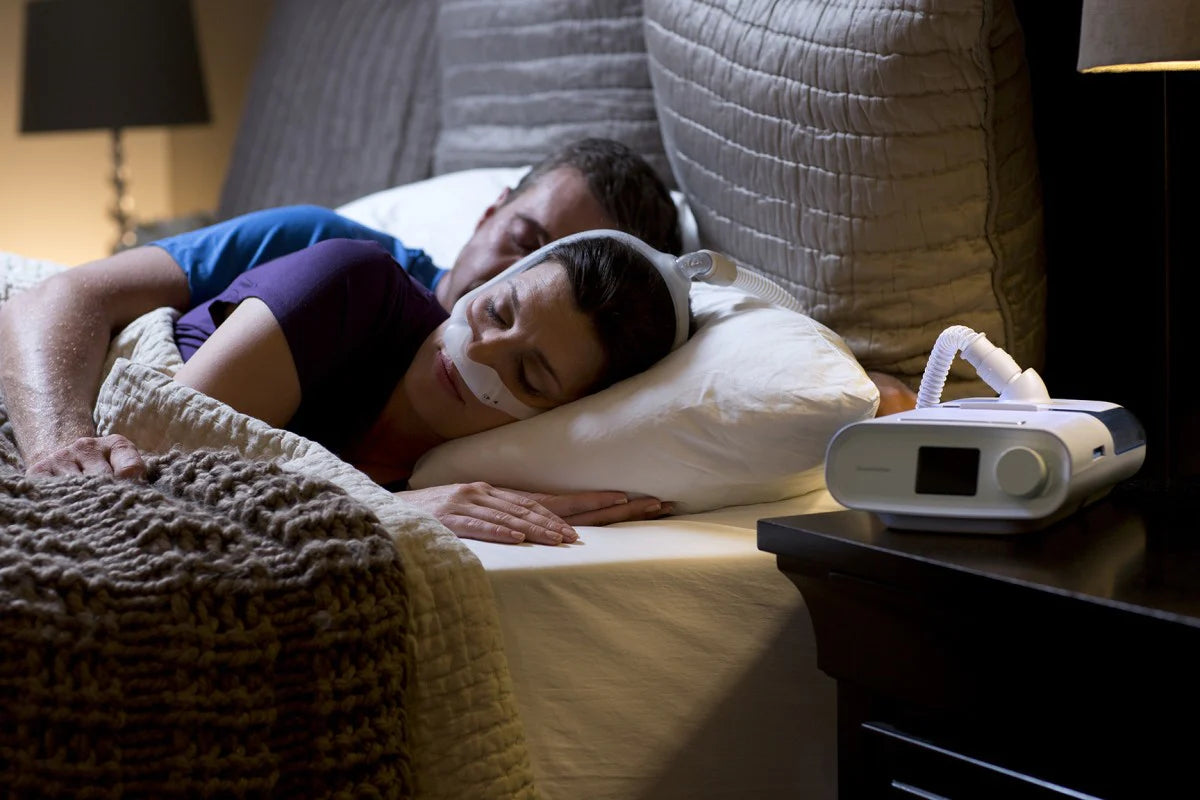For individuals with sleep apnea, few medical-related news stories have loomed larger than the ongoing recall affecting Philips Respironics CPAP devices.
Earlier this month, news broke that the company had agreed to a $479 million recall, but the story is far from over. By understanding where things stand with the recall — particularly what it does and does not cover — former Philips Respironics CPAP users can prepare for the next steps in what has been a long and admittedly frustrating process.
A Recall Recap
The Philips Respironics recall was issued in 2021 after it was discovered that sound abatement foam in several of the company’s devices was prone to deterioration. As the foam degraded, it could get blown into users’ airways while using their CPAP machine. The degraded foam was also linked to the emission of volatile organic compounds, including toxic carcinogens.
In addition to CPAP and ventilator products not sold in the United States, the recall affected the entire Philips Respironics DreamStation line (including DreamStation GO) devices, as well as the System One ASV4 series, System One 50 series, System One 60 series, and the Trilogy 100 and Trilogy 200 ventilators.
The FDA labeled this as a Class 1 recall — the most serious type of recall notice — due to the risk of severe harm (including death) to affected users.
Unfortunately, the recall process has been slow and frustrating. Not only have many customers gone through significant delays in getting their device repaired or replaced, but some customers actually received repaired devices with incorrect serial numbers that also had to be recalled. While Philips states that over 2.5 million CPAP devices in the U.S. had been repaired or replaced as of September 2023, over 5.5 million devices were estimated to be impacted by the recall in the United States alone.
Needless to say, news of a settlement is welcome to many.
Understanding the Latest Settlement News
The $479 million settlement that Philips Respironics has agreed to is meant to compensate customers for the economic losses they experienced as a result of the recall.
As Philips explained in a statement, this settlement is meant to “provide predefined cash awards to all eligible participants in the U.S. depending on the type of device, extended warranties on all replacement devices, and an additional cash award if they return the recalled device to Philips Respironics. […] The settlement will further compensate certain individuals who acquired replacement devices post-recall.”
According to reports, class action members are expected to receive compensation in amounts ranging from $50 to $1,500, with an additional $100 reward for each faulty CPAP device returned to Philips Respironics. However, these settlement payments are not expected to be issued any sooner than the first quarter of 2024 — possibly later.
Still, news of any kind of settlement should be welcome news to many whose treatment was disrupted by the recall.
What About Other Claims?
A key part of understanding the settlement is knowing what it does not cover: namely all medical expenses and personal injury claims related to the recall. Thousands of lawsuits have been filed against the company regarding these claims, and in its settlement agreement, Philips did not admit to any wrongdoing that would cause it to be liable for these types of claims.
Despite this, the case doesn’t look particularly promising for Philips. The FDA has received over 105,000 reports of injuries and 385 reports of death that are believed to be linked to the foam degradation. Reported injuries include cancer, asthma, pneumonia, chest pain, dyspnea, and more. Unsurprisingly, lawyers are continuing to pursue claims in these personal injury and wrongful death cases, despite Philips claiming that its own internal risk assessments determined that exposure to the foam particles was unlikely to cause significant harm.
In fact, the company has been heavily criticized after it was discovered that concerns about the foam had been circulating at the company since 2015 — roughly six years before the recall was issued. It’s also worth noting that the company recently revealed to shareholders that it was going to lay off 10,000 employees and set aside $630 million in anticipation of lawsuit settlements.
While Philips Respironics seems determined to fight the personal injury and medical expense claims, it seems like they expect more settlements in the future. Unfortunately for consumers, it appears that more time in the courtroom will be necessary before any kind of resolution comes about.
What’s Next?
As of this writing, the settlement agreement is still awaiting approval from a federal judge. Once approval is granted, Philips Respironics will be able to begin dispersing settlement funds to qualifying customers.
Of course, it is important to keep in mind that during various stages of the recall process, customers have complained that the company failed to notify them that they were affected by the recall, or didn’t provide information on what they needed to do. Because of this, it would be wise to take a proactive approach — don’t wait for Philips to contact you. Check for updates on the status of the settlement and reach out to them directly as soon as that information is available.
The uncertainty and extended length of the Philips Respironics recall is understandably frustrating and stressful — especially if you are among the large group waiting to receive a replacement CPAP or BiPAP device. Here at Help Medical Supplies, you can find a wide selection of quality CPAP machines available at significantly discounted prices, helping you save hundreds on this essential medical equipment so you can sleep easily.

